Could you be low on one of your most important proteins? Here’s how to tell if you have a collagen deficiency – and how to correct it ASAP.
Think of collagen as a sort of sticky-like substance that works like glue to hold your important structures together. Your body needs collagen to build your skin, joints, tendons, ligaments, cartilage, and bone. Collagen even helps with blood clotting.
Unfortunately, things like aging and a poor diet can decrease your body’s production of collagen.
How does bone broth fight inflammation AND promote weight loss? Download our Free Bone Broth Guide And Recipes To Find Out Now!
Click here to get your FREE Bone Broth Guide And Recipes Today!
Certain autoimmune conditions can also affect the way the body uses and produces collagen. These are known as collagen vascular diseases, and can be caused by genetics or stress.
These diseases include: (1, 2)
- Rheumatoid arthritis
- Lupus
- Sjogren’s syndrome
- Polymyositis dermatomyositis
- Systemic sclerosis
What’s the Difference Between the Collagen Types?
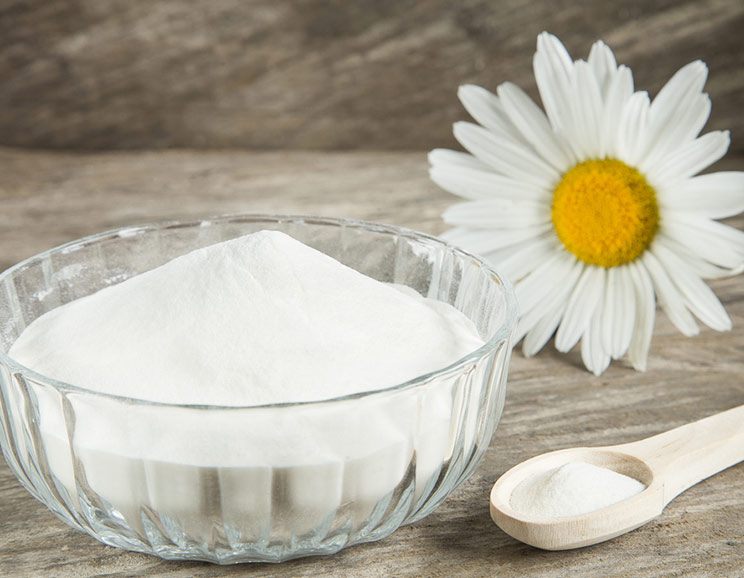
There are at least 16 distinct types of collagen in the body, each with its own purpose. The most common forms are Type I through Type IV. (3)
As much as 90% of the collagen in the human body is Type I, which is structural support for bones, teeth, tendons, cartilage, and connective tissue. Type II collagen is stretchier, providing support for cushioning joints. Type III is found more often in arteries and organs, and Type IV is primarily found in various layers of the skin.
The older you get, the less efficient your body is at making collagen. The quality of the collagen your body produces also declines with age.
Signs You Might Have a Collagen Deficiency

Your body needs collagen. Nearly every bodily system, organ, and tissue relies on collagen to function optimally. When you don’t have enough, problems will occur.
If you are low in collagen because of aging or poor diet, lifestyle, or environmental factors, your symptoms will likely include wrinkles, sagging skin, stiff joints, brittle hair, and dry skin. (4)
If you have a collagen vascular disorder from autoimmunity, the symptoms will be more severe. They could include: (5)
- Skin rashes that may be itchy, painful, localized, or widespread
- Fatigue
- Weakness and aches in muscles
- Joint pain
- Fever
- Dry skin, eyes, mouth
- Mouth ulcers
- Open sores
- Sensitive scalp
- Hair loss
- Thick and hardened skin
- Burning, itching, or blistering of the skin
- Numb or cold fingers and toes (Raynaud’s disease)
Despite the cause, a collagen deficiency ultimately means that your body lacks the needed amount of collagen to properly nourish tissues, joints, organs, and body systems.
How to Get Tested for Collagen Deficiency
If you have age or lifestyle-related symptoms of low collagen levels, like wrinkles or dull skin and brittle hair, doctors won’t specifically test you for low collagen levels. There are no blood tests to assess the exact levels of the different types of collagen protein in your body.
When you display the most severe signs and symptoms of one of the collagen vascular disorders, however, you will get extensive medical testing. Your blood might be assessed for hormone changes and your urine could be examined for infection or excess proteins. Your doctor might suggest an echocardiogram, X-ray, CT scan, or even a biopsy to investigate certain symptoms or problem areas. (6)
Getting Treatment for a Collagen Deficiency
Your treatments from a collagen vascular disorder will be very different from a lifestyle or age-related problem.
Simply taking large amounts of supplemental collagen will not treat a collagen vascular disorder. Since it stems from an immune-driven attack of the body, the root cause of the disorder needs to be suppressed before relief can be found.
With collagen vascular disorder, the treatment protocol might involve any of the following: (7)
- Taking steroids or immune-suppressing drugs
- Starting physical therapy
- Getting surgery to replace damaged joints
- Making lifestyle changes, such as exercise and stress reduction
However, it’s a lot easier to treat a collagen deficiency from lifestyle factors. If you suffer from early wrinkles due to things like smoking, stress, or excessive sun exposure, getting more collagen in your diet will help.
You can boost collagen in your diet in three distinct ways. You can eat more foods that contain collagen, you can eat foods that increase the body’s own production of collagen, or you can take collagen supplements.

The best foods that contain collagen include:
- Bone broth
- Organ meats
- Seafood
- Eggs
- Chicken skin
Foods that can help boost the body’s collagen production are rich in vitamin C and minerals like sulfur, zinc, and copper. The best examples include:
- Citrus fruits
- Berries
- Tomatoes
- Bell peppers
- Leafy greens
- Cruciferous veggies like cabbage, kale, and cauliflower
- Garlic
- Nuts
- Seeds
Collagen supplements come in many forms. They can be derived from bovine, poultry, or marine sources and can come in powder, capsules, or added to health food products like bars or shakes.
Supplementing with collagen powder can be a great way to boost your levels. It has several key benefits. First, you know exactly how much you’re getting. Instead of wondering if you’re getting enough from diet sources alone, a daily collagen supplement can help ensure that you’re getting a consistent intake. Follow the serving recommendation to start with or whatever your healthcare provider directs.
Collagen powder is also great because it’s tasteless. You can dissolve it into any liquid without changing the taste, making it easy to get down. Plus, it adds a bit of protein to whatever you’re drinking, too. Pairing collagen powder with coffee is a great way to boost the nutrition of your morning java, and the protein in the collagen helps slow down how quickly you feel the effects of caffeine. This means you’ll be less likely to get the jitters and will have longer-lasting energy.
Recipes That Help Collagen Deficiency
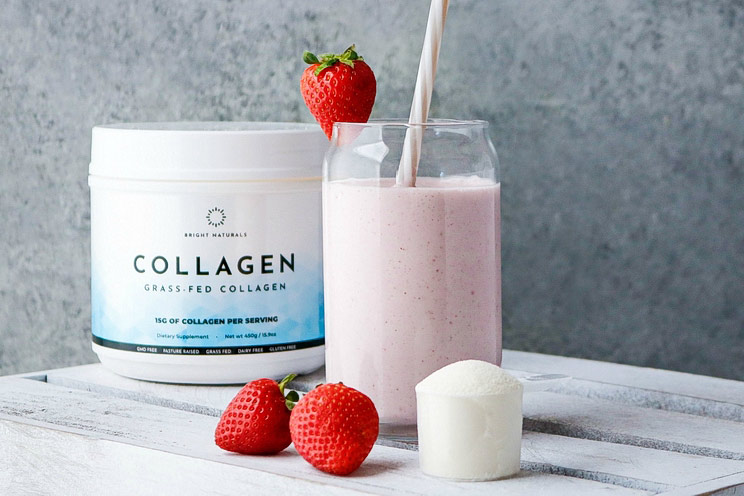
If you want to boost your dietary collagen, there are many recipes that you can cook at home that contain collagen. Some might include gelatin, and this is because collagen is a main component of gelatin. When you use gelatin to cook, you’re actually getting as much collagen as you would from a collagen supplement. Here are some of our favorites!
Breakfast:
- Goldilocks’ Skin-Glowing Porridge with Collagen
- Banana Bread Collagen Pancakes
- Chocolate Collagen Protein Pancakes
- Spiced Pumpkin Protein Waffles
Drinks:
- Strawberry Collagen Smoothie
- Paleo AIP Smoothie
- Watermelon Frose with Collagen
- Vanilla Collagen Coffee Creamer
Lunch and Dinner:
- Gut-Healing Bone Broth
- Gut-Healing Garlic Asparagus Broccoli Soup
- 5-Ingredient Meatball Soup with Bone Broth
Gummy Snacks:
- Latte Gummy Bears
- Homemade Sour Strawberry Gummies
- Gut-Healing Kombucha Gummies
- Strawberry Lemon Gingerbread Men Gummies
Desserts:
- Lemon Curd with Collagen Peptides
- Collagen Marshmallows
- Pumpkin Spice Blondies
- Salted Caramel Ice Cream
Looking for Paleo collagen? We recommend this one:
Collagen (Bright Naturals)
The Bottom Line
Collagen is an essential protein in the body for health, especially when it comes to joints, skin, and the gut. Not getting enough can have serious consequences, but fortunately, it’s easy to boost the intake through diet and supplement sources.



 Keto Cauliflower Eggs Benedict
Keto Cauliflower Eggs Benedict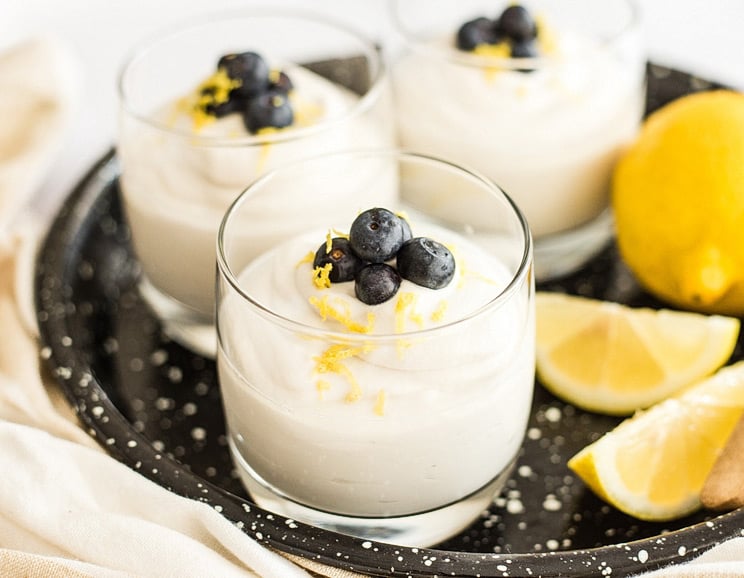
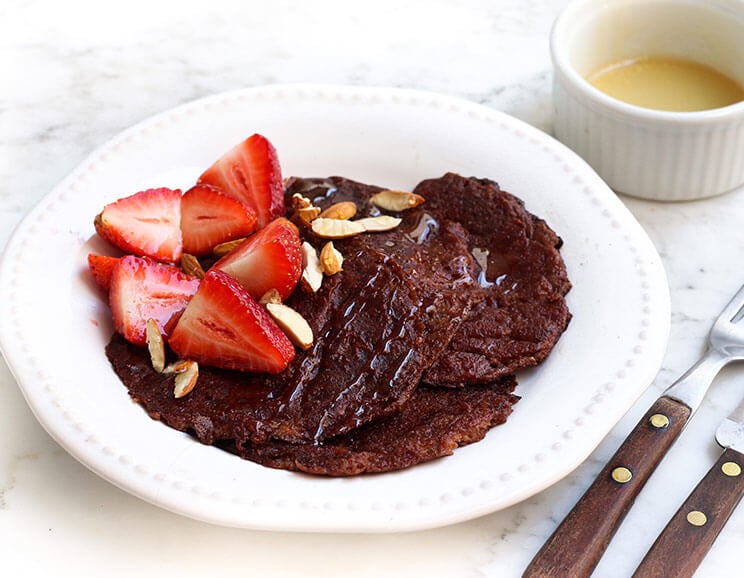
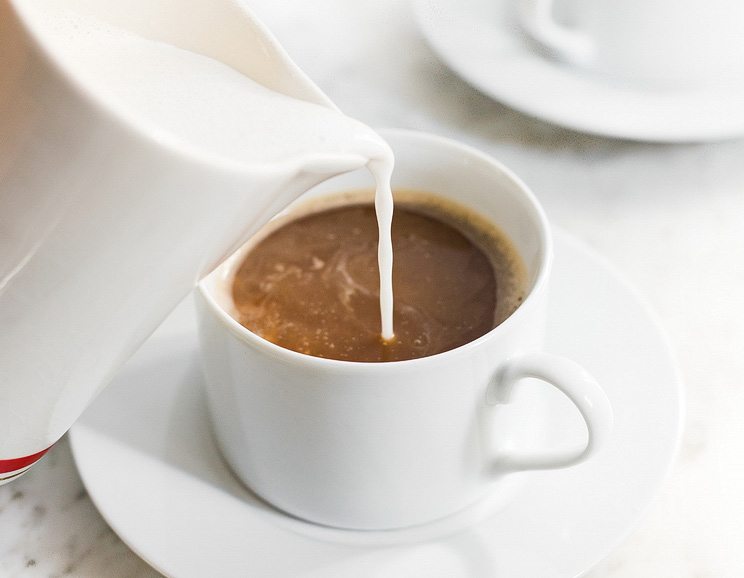
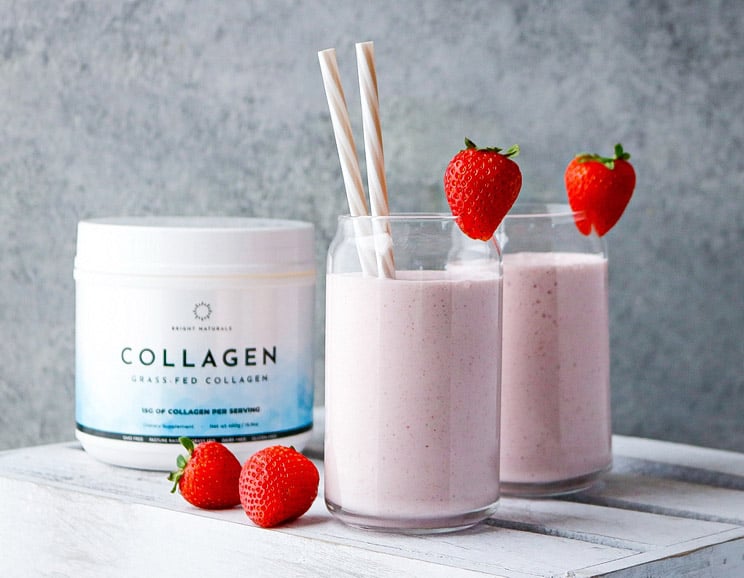

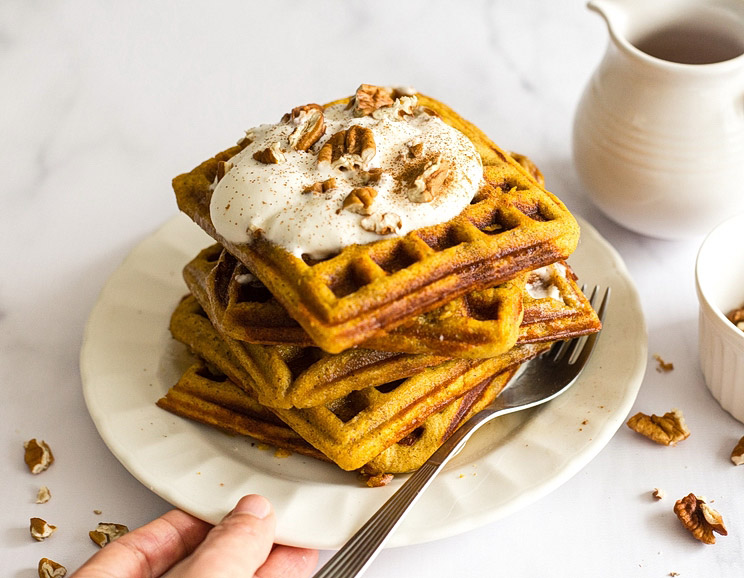


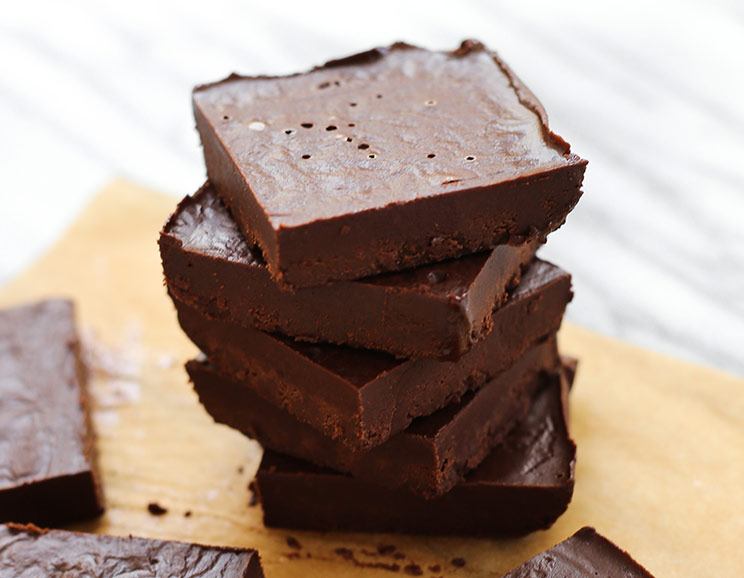
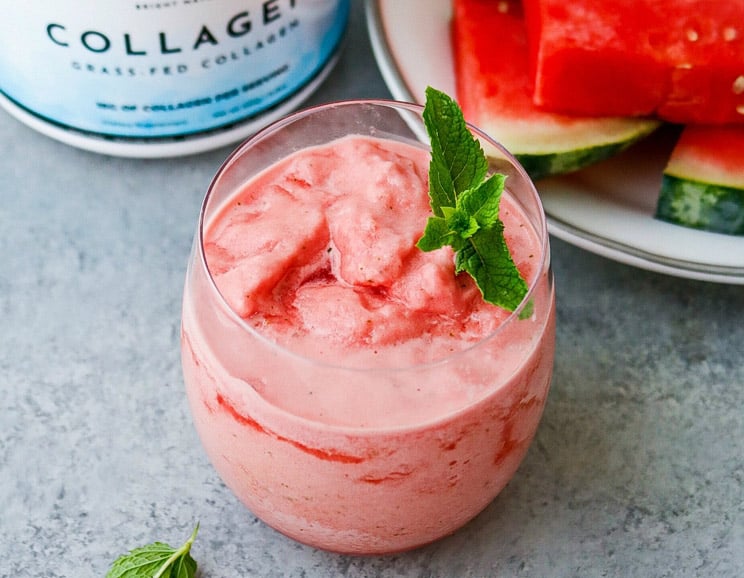
Show Comments